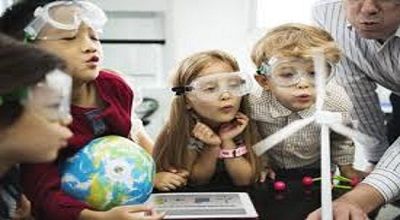Teach science to under 4 Year Children
Teaching science to children under 4 years old can be both fun and educational. At this age, it’s important to focus on hands-on, sensory-rich activities that stimulate curiosity and exploration. Here are some strategies and ideas:
- Start with basic concepts: Focus on basic scientific principles like colors, shapes, and simple cause-and-effect. Use everyday experiences to teach these concepts.
- Use Simple Experiments: Engage in simple, safe experiments that don’t require complex tools. For instance, mixing water and food coloring to learn about color mixing or planting seeds in a cup to watch them grow.
- Explore nature: Take them outside to explore nature. Point out different types of plants, animals, and insects. Talk about the weather, seasons, and natural phenomena like rain, snow, or sun.
- Sensory Play: Use sensory play to teach scientific concepts. This can include playing with water, sand, slime, or dough. Sensory bins with various objects can help them learn about textures, densities, and more.
- Story Time with Science Books: Choose age-appropriate science books with lots of pictures and fun facts. Reading about stars, animals, and plants can be very engaging.
More here…
- Encourage Questions: Children are naturally curious. Encourage them to ask questions, and help them find answers through simple explanations or demonstrations.
- Use Educational Toys: Toys like building blocks, magnets, simple puzzles, and age-appropriate science kits can be very educational.
- Visual Aids: Use pictures, videos, and simple diagrams to explain basic scientific concepts.
- Routine Observations: Make scientific observation a part of daily life. For example, observing the moon at night, watching the rain, or noticing the changes in a plant.
- Interactive Activities: Engaging in activities like cooking can also be a form of science education, teaching them about mixing, heating, and reactions (like baking soda and vinegar).
Note
Remember, the goal is to make learning enjoyable and engaging, sparking a lifelong interest in science. It’s not about formal teaching, but about exploring and understanding the world around them in a fun way.
